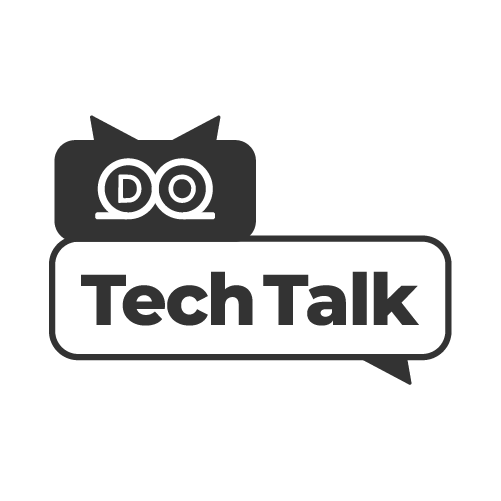The non-fungible tokens (NFTs) are rapidly rising as a revolutionary technology in the current highly dynamic digital environment. NFTs are digital assets unique and use blockchain technology to create undisputable ownership of physical and digital things. Businesses leverage the power of NFTs to fundamentally change how they operate, from the identification of owners to customer relationships and revenue generation.
What is NFT?
NFT = non-fungible token. Alright, now let’s simplify this:
“Fungible” in the English language means “capable of being replaced with another identical, interchangeable item,” which is why pound currency is fungible. It can be changed to another similar currency of the flat pound. Non-fungible describes that the item only exists in pieces. It cannot be referred to as a similar object, because there is no such an object. “Token” in NFT is used only to refer to the digital representation of the thing.
NFTs are stored on the Ethereum blockchain. Among the many blockchains available, it is one of the few that is different. A blockchain is a digital ledger that is shared on the computer network where multiple computers simultaneously record transactions on each block such that it is impossible to hack and also very difficult to reprogram or change.
How Companies are using NFTs nowadays
1. Product authentication and Traceability Assurance
The quest for counterfeit products and supply chain opaqueness has resulted in a need for a reliable system to authenticate products and ensure traceability, which NFTs aptly provide. By the mining of unique digital coins tied to physical items, companies can create non-refutable certificates of ownership and provenance. This technology not only helps consumers stay away from counterfeits but also builds the credibility and transparency of the brand
2. Verified ownership and authenticity
NFTs provide a strong solution for creating verifiable records of ownership, particularly for digital assets such as art, music, and videos. This can be used as a tool to curb counterfeiting and fraud as well as to ensure that artists and creators are well compensated for their work thanks to the transparent and immutable nature of blockchain transactions.
3. Track inventory efficiently
NFTs can also track the ownership and provenance of physical goods that are luxury items and collectibles. This can stop stealing and counterfeiting as well as improve supply chain management.
4. Reward customer loyalty
Businesses incentivize customer loyalty by providing exclusive content, discounts, and other perks in the form of token rewards. Through the provision of special NFT-based rewards, businesses cultivate a feeling of belonging and motivate return business. Such a strategy doesn’t only create good relations with the customers, but also generates noise about the brand, making the brand present in the market.
5. Create unique experiences
NFTs can help customers create unique experiences by granting them access to exclusive events, virtual games or worlds, and interactive pieces. This may lead to businesses being different from their competitors therefore attracting new customers.
6. Supply Management
The world of supply chain management is undergoing a major transformation with the emergence of tokens as a means of tracking goods, transactions, and regulatory approvals throughout the goods journey. NFTs can represent, trace, and verify a product from the origin of the raw materials to the end consumer.
Important elements for tracking products along the supply chain and preventing counterfeiting are secure data verification, privacy preservation, and fast implementation. NFTs are designed to address all three concerns at the same time. With NFTs, every aspect of a product’s journey is recorded in a single blockchain-protected ledger that provides an immutable record of all transactions. This not only reduces potential fraudulent activity but also helps companies ensure that their products reach customers efficiently.
Besides streamlining legacy systems, blockchain-powered supply chains have the potential to help environmentally conscious brands win new customers as environmental goodwill can be verified and tracked from source to shelf. Imagine the value to a large company when the work of bringing products to market is also a platform for marketing.
7. Events and Ticket Sales
Non-fungible tokens allow event organizers to create unique digital versions of a ticket that can be securely stored on the blockchain or transferred to the buyer. Consumers can purchase a ticket with complete confidence that they are the sole owner of the item and that it cannot be counterfeited.
NFTs also allow events to easily track ticket sales, identify any instances of fraud, and accurately measure their digital reach. They can also be attached to incentives or loyalty programs, which is especially useful for larger companies with multiple headquarters or locations that want to track customers throughout the relationship.
This is a great idea for large ticket sellers who want to ensure authenticity and share secondary sales as well as build customer loyalty. How many bills are thrown away after being scanned? What is the potential for a brand if the same ticket is bookmarked and shared millions of times on the web?
8. Avatars and Personal Photos
NFTs are very popular for creating digital self-expression and personalization on the web. Users can upload a unique profile photo as an NFT which can then be used on various social media platforms such as Twitter or Instagram. This provides users with more control over their online identity and gives them a way to represent themselves in the digital space.
NFT profile photos can also be used to link and sync different social media accounts without sacrificing security or privacy, creating a more unified and consistent digital presence. This is especially useful for people who want to keep their professional and personal lives separate as they can designate two different types of NFTs.
9. Entertainment NFTs
Bands have used NFTs to reward early adopters with digital collectibles that can increase in value as the group gains popularity, tracking engagement and listeners through smart contracts, as well as opening up new revenue streams. An album could be released using an NFT, and if that NFT becomes a digital collectible, the brand can share in the profits on the secondary market.
Conclusion
NFTs are changing the business model of the world in a manner never seen before. The power that NFTs could possess to shake up traditional operations and revenue models is truly unimaginable. With technology advancing, businesses should find ways to adopt and utilize NFTs and unveil new dimensions of success and innovation.
Read More NFTs Related blogs:


